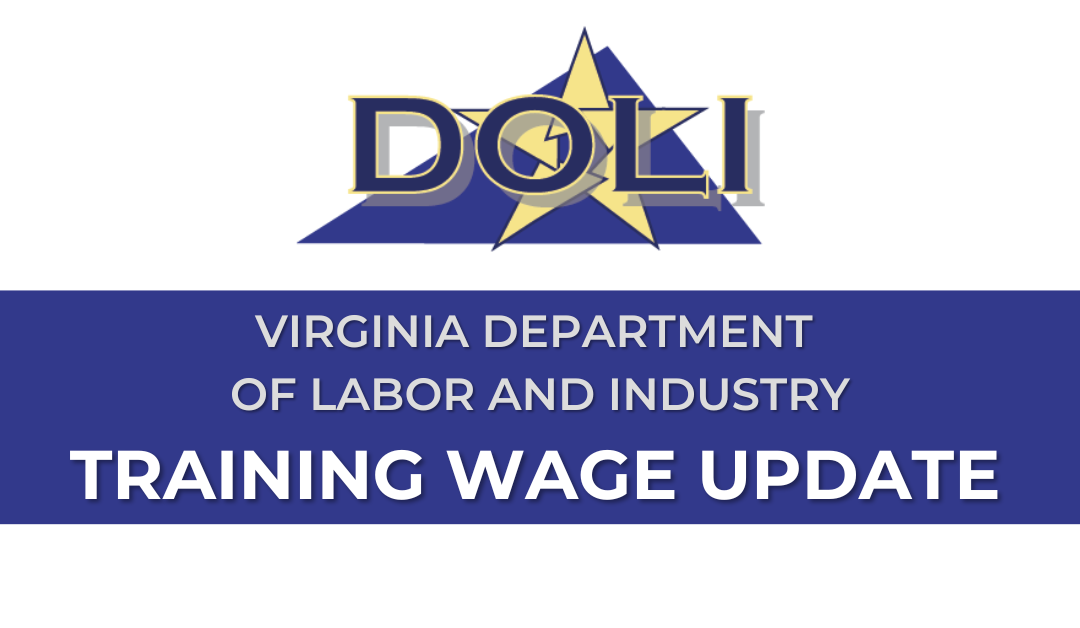Effective March 13, 2024, 16VAC15-60, sometimes referred to as the “Training Wage” regulation, has been adopted as a final regulation. This regulation, previously enacted as an emergency regulation, expired effective April 30, 2023. Under the regulation, employers in the Commonwealth may temporarily exempt an employee from the Virginia minimum wage (pursuant to § 40.1-28.10 Code of Virginia) and pay a lower training wage while they are participating in an established training program. DOLI’s Labor & Employment Law Division has provided a summary of the regulation and DOLI’s interpretation:
General Rules: The training wage regulation may be implemented by both private and public sector employers in the Commonwealth. To receive the training wage, an employee must be enrolled in an established on-the-job training program for a period not to exceed 90 days. The training wage rate shall be the greater of either the federal minimum wage or 75% of the Virginia minimum wage. (75% of the current Virginia minimum wage is $9.00 per hour.)
Eligible Employees: An employee may only be paid the training wage if there is a reasonable expectation that there will be regular, permanent employment for the trainee upon successful completion of the training program. Seasonal employees and temporary employees are not eligible. The trainee must also have no previous similar or related experience to the occupation for which they are being trained. An employer also cannot hire or utilize an employee being paid the training wage as a means to displace any other workers, such as by reducing hours of other employees, replacing an employee with a trainee, or replacing an approved registered apprenticeship program with trainees.
Training Programs: The training wage may only be offered to trainees in programs which meet certain requirements. The program must involve either formal instruction or on-the-job training which grants the trainee limited responsibilities, performed under supervision. The training program must also describe, in writing, the nature and extent of the instruction and supervision provided. Furthermore, the occupation for which the trainee is receiving training must require a sufficient degree of technical skill to necessitate a learning period. Training programs cannot be solely for the purpose of acquiring manual dexterity and high production speed in repetitive operations. For example, a bakery employing a baking trainee who is learning to use a multitude of equipment and develop the technical skills to produce various goods may pay this trainee the training wage. However, a bakery may not pay the training wage to a bakery clerk trainee who is tasked with using a cash register and preparing customer orders and whose training only entails learning how to quickly assemble and ring up orders.
About the Agency:
It is the mission of the Virginia Department of Labor and Industry to make Virginia a better place in which to live, work, and conduct business. DOLI’s Labor and Employment Law Division administers and enforces the laws of the Commonwealth that govern employee pay, the employment of children, and certain other statutes that relate to the workplace, including the training wage regulation. Additional information about coverage and requirements under the new regulation can be obtained by contacting the Division’s Payment of Wage Unit at (804) 786-2706 or at laborlaw@doli.virginia.gov.



